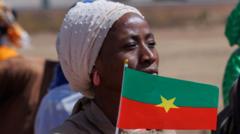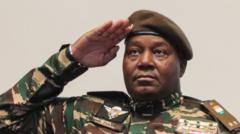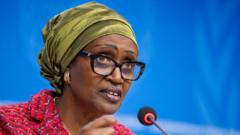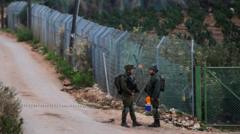The exit of three military-run countries from Ecowas signals substantial changes in political dynamics, security challenges, and economic dependencies within West Africa. While some citizens celebrate this decision, analysts warn of potential adverse effects on the region’s stability and cooperation.
Military Regimes Exit Ecowas: A New Era for West Africa's Alliance

Military Regimes Exit Ecowas: A New Era for West Africa's Alliance
The withdrawal of Mali, Burkina Faso, and Niger from the Ecowas bloc raises questions about regional stability and the future of West African integration.
The landscape of West Africa has shifted dramatically as Mali, Burkina Faso, and Niger have officially announced their departure from the Economic Community of West African States (Ecowas). This decision, made amidst escalating diplomatic tensions over military governance, is a severe setback for a bloc that has long been considered pivotal for regional unity and development.
The withdrawal followed a year of standoffs, with Ecowas demanding a return to democratic governance in the three countries, all of which are currently governed by military juntas. After the imposition of severe sanctions by Ecowas, including border closures and asset freezes, Mali, Burkina Faso, and Niger chose to establish a new coalition, the Alliance of Sahel States (AES), instead.
Ecowas, founded in 1975 to enhance economic and political cooperation, was home to 15 member states prior to this split, enjoying benefits such as free movement of goods and people across borders. However, the rigidity of Ecowas' stance regarding military rule and its perceived alignment with Western interests led these countries to seek greater autonomy by leaving the bloc. They argue that their departure allows for more sovereignty and freedom from foreign influence.
As the three nations pivot away from Ecowas, analysts express concerns about their ability to manage without it. Although the juntas claim an increased independence, Niger, Mali, and Burkina Faso are economically dependent on their neighbors for resources and trade. Ecowas has assured that it will honor previous identification documents for citizens of the departing countries, allowing them to maintain some economic ties.
The implications of this withdrawal could manifest in worsening security conditions in the Sahel, which has been plagued by jihadist violence. Ecowas has provided support to combat these insurgencies, and its absence may embolden militant groups. Despite this, military leaders in the departing countries have sought arms and support from Russia to counteract threats but face ongoing casualties from instability.
The withdrawal also represents a critical moment for Ecowas, which will lose roughly 76 million people from its population base and significant territorial influence. Experts warn that this split damages the bloc's credibility and efficacy in maintaining peace and cooperation in West Africa.
Public sentiment in Mali, Burkina Faso, and Niger is mixed. While some citizens celebrate the exit as a step towards independence, others express concerns about potential economic ramifications and the possibility of increased isolation. Some believe that a dual membership in both Ecowas and AES would have better served regional unity.
Looking ahead, Ecowas has granted a six-month window for the three nations to reconsider their withdrawal, emphasizing that a return is possible. Meanwhile, Mali, Niger, and Burkina Faso are moving forward with their new alliance, including the introduction of AES passports and plans for a collective military initiative against ongoing insurgencies.
The future of West Africa now hangs in a precarious balance, as this unprecedented move challenges existing power structures and raises vital questions about the region’s stability and collective prosperity.






















